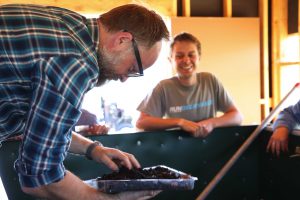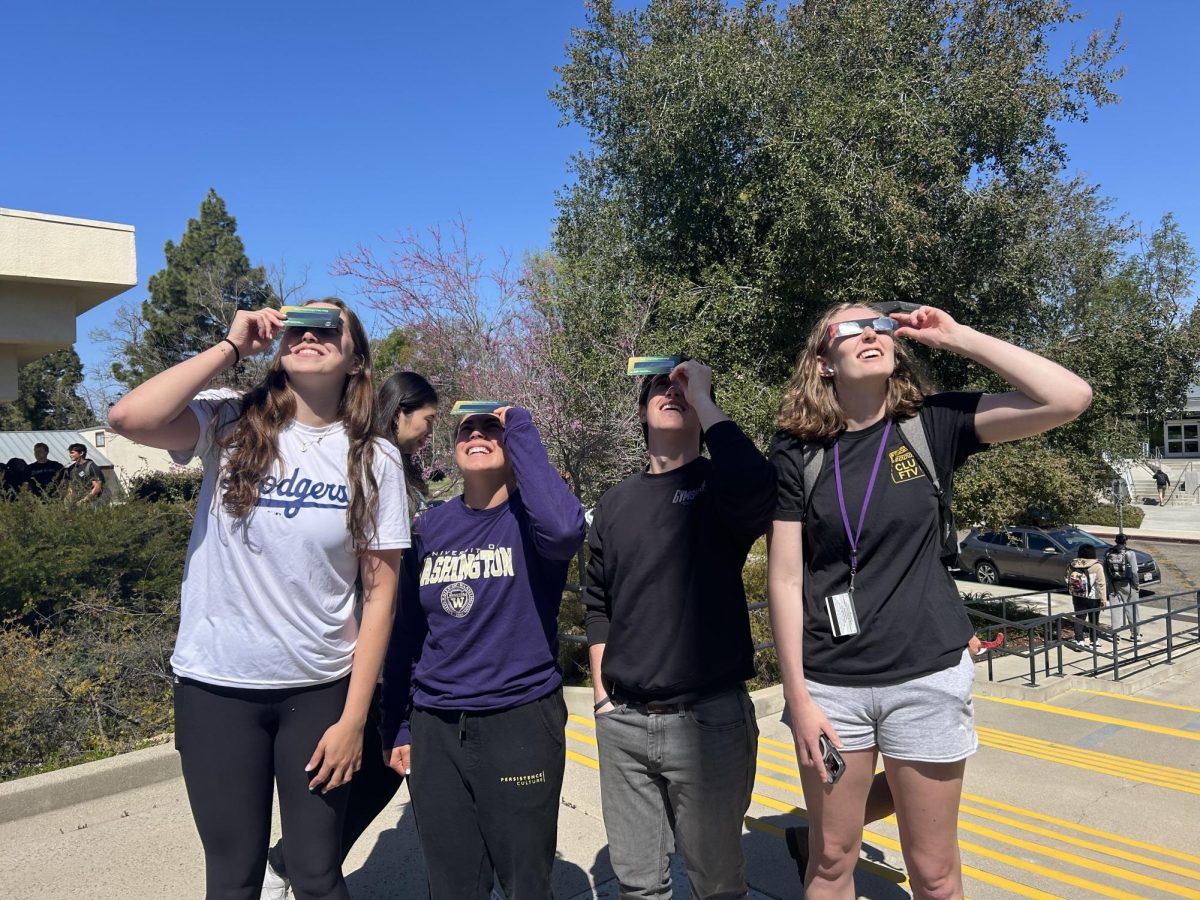Worms are turning food scraps from the cafeteria into fertilizer for the SEEd Garden.
The SEEd Garden officially welcomed its new worm inhabitants April 19 with a worm warming party.
The worms are a part of a new composting research project, in which food scraps leftover from Ullman Commons are fed to the worms, turned into fertilizer and used to grow crops in the SEEd Garden.
As part of a two-year research project that began in the fall of 2015, California Lutheran University student and SEEd project member Jake Derksen came up with the idea to try and bring more sustainability to Cal Lutheran with the help of SEEd Garden advisor Samuel Thomas and a grant from the city of Thousand Oaks.
“Jake Derksen came to me in September of 2015 and wanted to do something on campus in connection to the SEEd project,” Thomas said. “We started writing the grant in fall of 2015 and received the grant in December of that year.”

Photo by P.K. Duncan- Staff Photographer
Working closely with Derksen, Thomas said he helped write up the grant and helped with deciding on the main idea of worm composting.
“This has always been something that the SEEd project wanted to do at some point,” Thomas said. “It became a step in the right direction towards a more robust composting program for our school.”
After going through the process of writing the grant and then attending city council meetings to propose the grant to build the structure for the worms, Derksen and the rest of the SEEd project team received the $5,000 grant and began working on this new composting plan.
“I was actually on track to go to med school when I took Dr. Thomas’ environmental ethics class and that was one of the big things. Talking to him, learning about environmental stuff and coming to the garden was one of the big things that inspired me to take on a sustainable project,” Derksen said.
Coming from a local farm, the worms will continue to multiply and create more nutrient rich compost fertilizer, which will be used in the plant beds of the SEEd Garden.
“The purpose of this project is to help make campus more sustainable. We take the food prep waste from Ullman Commons and we put it in this big bin with the worms,” SEEd project member Rachel Lapp said. “The worms produce worm castings and these worm castings are really rich soil fertilizer and really productive so we plant it in the beds which is good to grow things in.”
The worms started off with a population of around 15,000, but have since multiplied to around 30,000 to 40,000.
“The worms reproduce really quickly,” Lapp said. “They’re self-heating, they do everything on their own but they do need a good balance of carbon and nitrogen, so we have to put some plant matter in there to reduce the carbon.”
Members of the SEEd project are excited to see this project take off, and are looking forward to the continued expansion in the worm population.
“I’m really excited to see this. For me, it’s come twofold. One, it’s a great demonstration project for people to learn about worm composting, but probably more for me would be the experiential learning both for me and the students involved,” Thomas said.
In the future, the worms will continue to multiply and the compost will continue to grow.
“The more the worms multiply, the more food we get to put in every week. We’d like to get to a point where all the food waste from the cafeteria is completely composted by the worms of the garden,” Derksen said. “Maybe in the future it’d be really cool if we could get a system where we could compost even the stuff that comes out of the dorms. That’s a good goal.”
Alexa Barnes
Staff Writer






